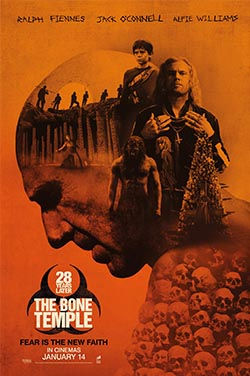Gun City Movie Review
- Rob Cain

- Jan 26, 2019
- 3 min read

Released: 31st October 2018
Length: 126 Minutes
Certificate: 15
Director: Dani de la Torre
Starring: Luis Tosar, Michelle Jenner, Vicente Romero, Manolo Solo, Paco Tous, Adriana Torrebejano, Pep Tosar, Jaime Lorente as León, Ernesto Alterio and Fernando Cayo
Following in the footsteps of the best gangster films, Gun City takes the familiar attributes of the genre and places them in Spain for its release on Netflix.

In 1920’s Barcelona, a train carrying riches and military weapons is robbed by the local mob; fearing a violent conflict erupting in the city, the government and local police force resolve to track down the missing shipment and contain the unruly spread of striking anarchists. A team of four police officers (played by Luis Tosar, Vicente Romero, Manolo Solo, and Paco Tous) leads the case, most of whom don’t hesitate to stoop as low as the criminals they hunt. We follow these men and their targets including wealthy business owners and corrupt barons throughout the narrative as they seek to impose their own agendas in a city in danger of unrest. Gun City engages the audience through its web of motives and alliances; with police officers doing backhanded deals with crime and striking workers resorting to desperate measures to create change by force. Layering action and drama accordingly, the film ensures that you can keep track of all these plot points. The connections aren’t always wholly consistent however; one segment involving a downtrodden club performer (played by Adriana Torrebejano) and her care of a thirteen-year-old girl is mostly pushed to the background, not really trying in the main events. The climax also stops short of being memorable, opting for a single-building skirmish as opposed to following up on the ultimate goals of the anarchists.

The characters of Gun City are mostly distinctive in their mannerisms but simultaneously we don’t learn much about them over the course of the film. The performances are mostly used to deepen the narrative background, rather than deliver personal stories. The anarchists are led by Salvador Ortiz (Paco Tous) who believes peaceful protest and high membership is the way to win, but he’s at odds with the younger Leon (Jaime Lorente) who wants a violent uprising. These perspectives are just what they are though; perspectives. They bring intrigue to the background context, but the film doesn’t show the audience why these characters believe the way they do. The same is true of the police officers who mostly conform to archetypes from the corrupt leader and one who uses excessive force out on the beat. Other actors in the proceedings fare better; Michelle Jenna’s Sara has a more complete arc and forms the emotional heart of the film; formerly a peaceful protester, she’s driven to revolution after losing her friends and family to the authorities. Then you have Basque (Luis Tosar) a wild card in the police who works to play both sides off each other while showing more restraint than his compatriots in the line of duty. While his backstory is only hinted, the audience nevertheless roots for him as he is caught in the middle of everything.

The tumultuous narrative in Gun City is placed against a gorgeous backdrop and its efforts to absorb the audience are successful. Pitch-perfect costume design firmly establishes the different factions, the soundtrack’s heavy use of strings grounds the setting and the camerawork is seamless, showing us every detail of the environments. The lighting is particularly good, with ritzy gold colours glistening both in and out of the Eden Club. Often the film gets ambitious with its camerawork, with long takes pulling us through the action scenes or moving through a building seamlessly. The action itself is slower and more methodical, swapping between brutal brawls and gun battles; these moments are presented from mid-range to deliver a clear view. All told, the presentation on show is brilliant.
Gun City is well-acted, lavishly produced and roots itself in a highly detailed historical context. With that said, it doesn’t go beyond these qualities to deliver something memorable; character development is relatively basic, and several plot elements aren’t so cohesive. Despite these takeaways, it’s still just as immersive as any other period-piece crime drama.
Rating: 3.5/5 Stars (Good)










Comments